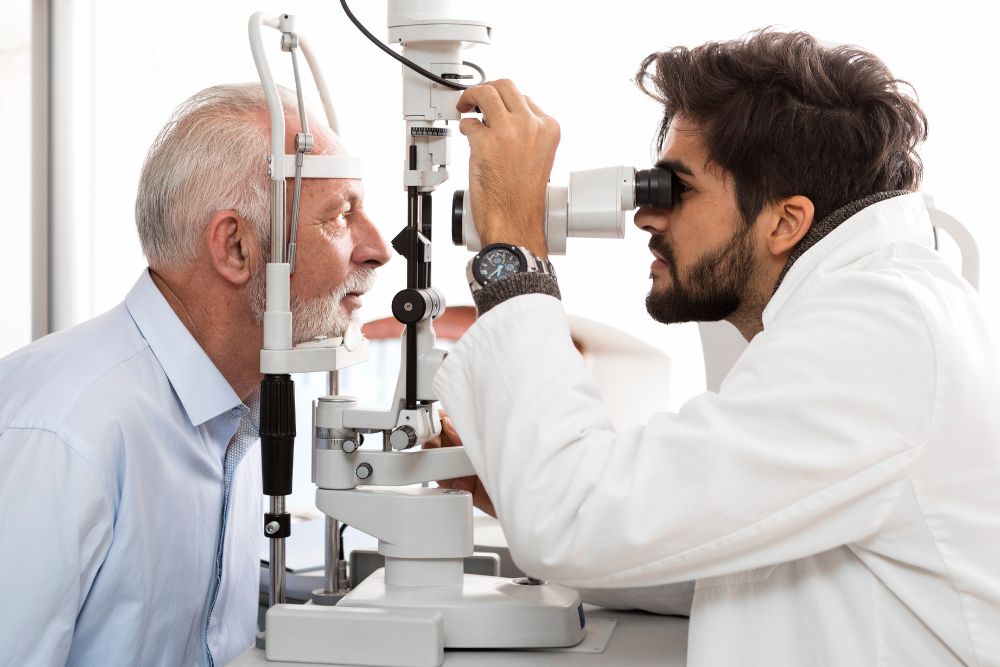What Are the Treatment Options for Age-related Macular Degeneration?

Age-related macular degeneration (AMD), is an eye condition that can cause blurring or loss of your central vision. It is due to damage to the macula, which is the center part of the retina. AMD is extremely common. In fact, it is the leading cause of vision loss in older adults.
If you are at risk of developing or have already been diagnosed with AMD, you may be curious about the available treatment options. Your treatment plan will depend on various factors, including how advanced your condition is and whether you have the “dry” or “wet” forms of AMD.
Dry AMD
There are three stages of dry AMD: early, intermediate, and late. The condition typically advances gradually over several years and often affects both eyes. Symptoms can include:
- Blurry or fuzzy vision
- Visual distortions
- Reduced central vision
Dry AMD Treatments
There are no treatment options for the early stages of dry AMD. However, making lifestyle changes such as maintaining a healthy diet, staying active, quitting smoking, and wearing sunglasses outside can help. It is also important to see your retina specialist regularly to monitor disease progression.
For individuals with intermediate AMD, special dietary supplements containing vitamins and minerals may be beneficial in preventing the later stages of AMD. The AREDS2 vitamin has been shown to decrease the chances of disease progression and is typically recommended for patients at this level of AMD.
Late-stage dry AMD demonstrates geographic atrophy (GA), which are patches of thinning in the central retina associated with vision loss. Until recently, there were no treatments for geographic atrophy. However, the U.S. Food and Drug Administration (FDA) has approved Pegcetacoplan and avacincaptad pegol, both of which are eye injections that can slow the progression of geographic atrophy.
Wet AMD
Wet AMD is another form of late AMD that usually causes rapid vision loss. This condition occurs when abnormal blood vessels develop underneath the retina and cause leakage and bleeding that damages the macula and impairs central vision.
Wet AMD Treatments
The gold standard for treating wet AMD is eye injections of medicines belonging to the anti-VEGF (anti-vascular endothelial growth factor) family. They work by inhibiting the growth of abnormal blood vessels and preventing leaking or bleeding in the center part of the retina. Fortunately, there are now many FDA-approved medications available to patients with wet AMD, and even more are being researched and developed.
Get Your AMD Questions Answered
AMD is a complex condition that can lead to permanent vision loss. Unfortunately, there is no cure for AMD. However, there are available treatments that can help slow the progression of the disease.
If you have questions about AMD or available treatment options, it’s important to consult with a retina specialist. At Retina Consultants of Texas, our expert team can address your AMD concerns and develop a treatment plan that best meets your needs and specific situation. If you live in Houston or surrounding areas, contact us today to schedule an appointment.







